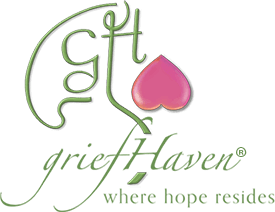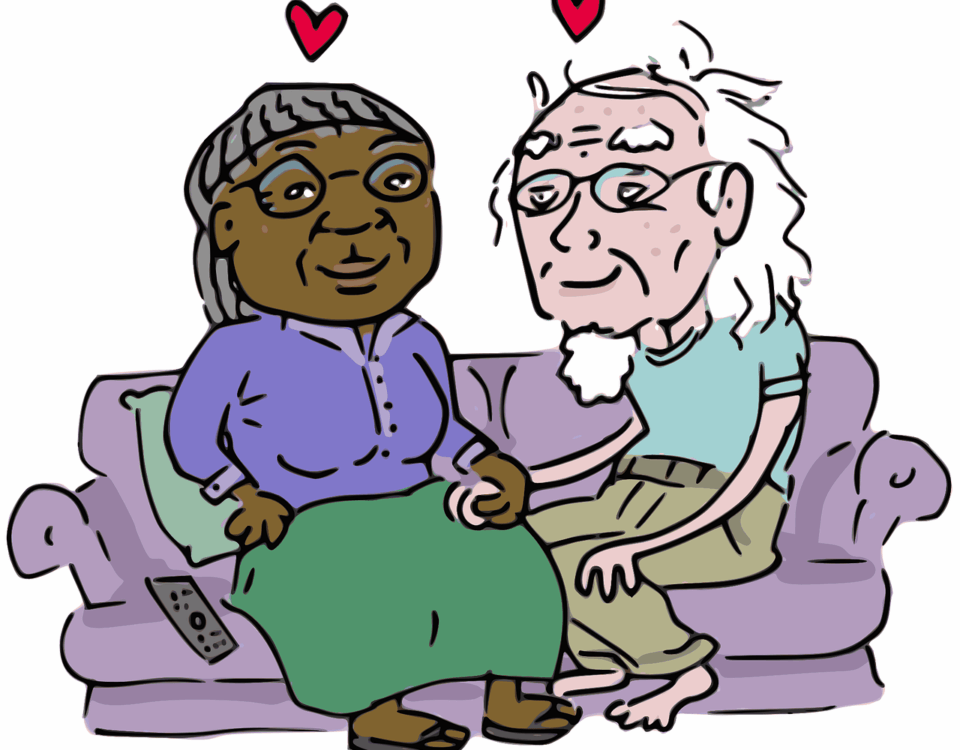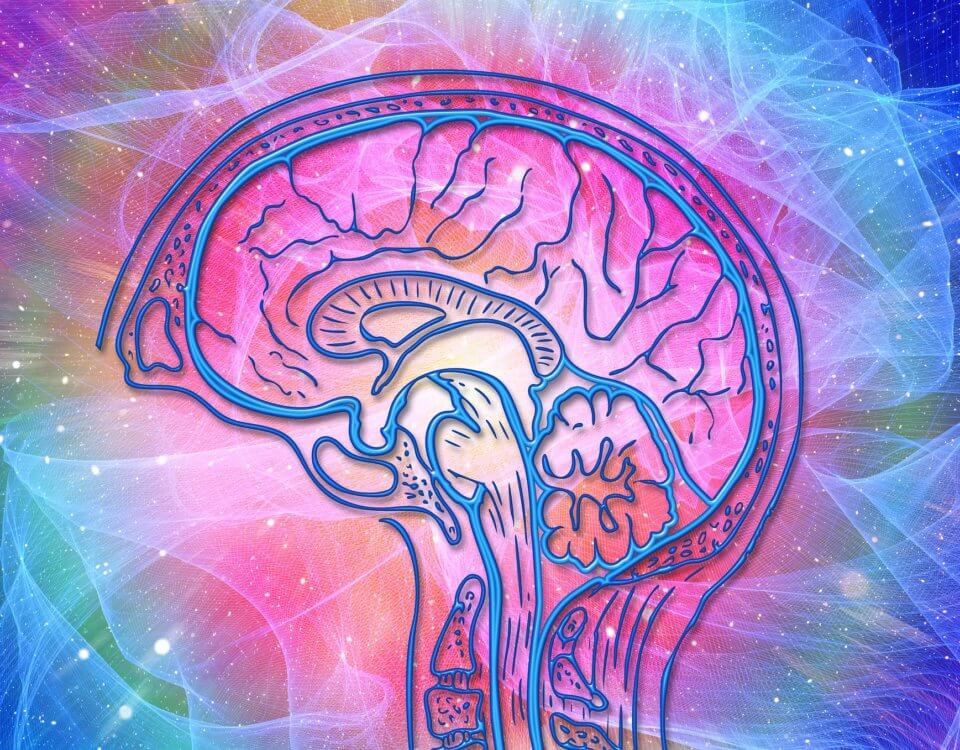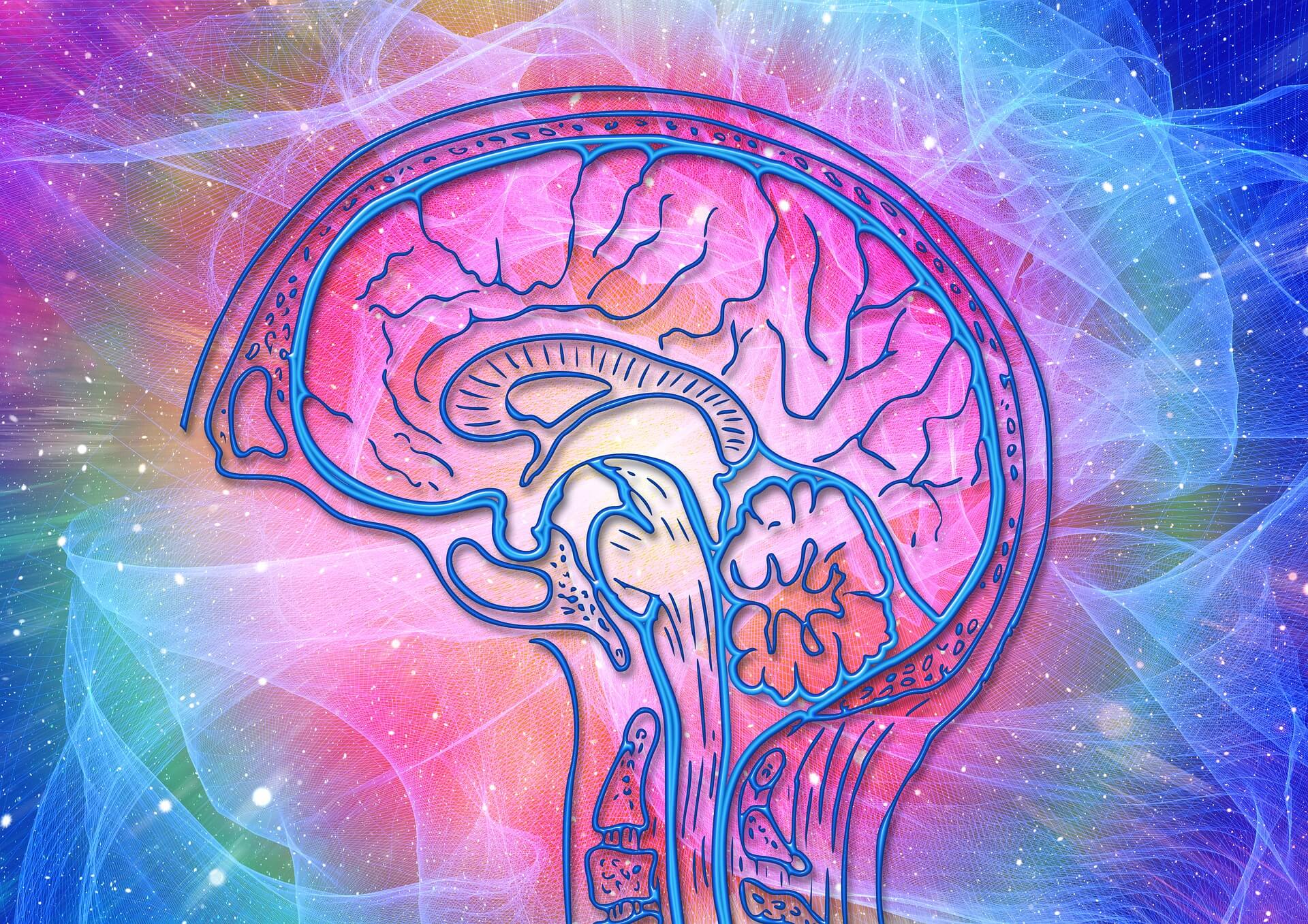
Understanding Grief is Another Expression of Love
August 4, 2020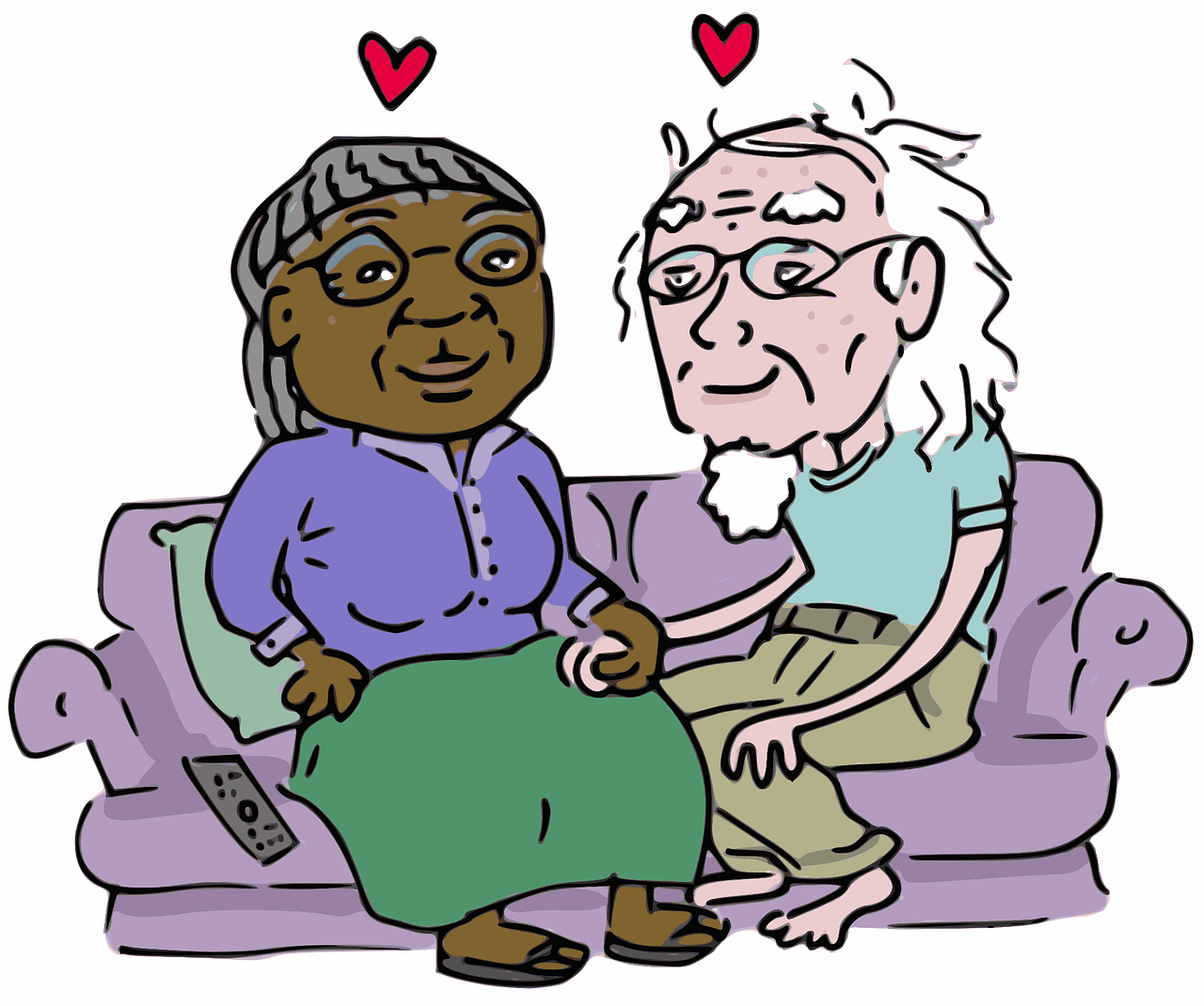
Helping A Grieving Grandparent
August 11, 2020Share This Article
12 Insights into Grieving
After the Death of Your Loved One
By Therese A. Rando, Ph.D., BCETS, BCBT
The journey through grief is different for all of us … we all take our own path.
Someone you love has died. This presents you with one of the most challenging experiences any human being can face—coping with the loss of your loved one in your life. In this article, you will learn about your grief (experiencing your reactions to the loss of your loved one) and your mourning (making necessary readjustments to ultimately fit that loss into your life).
Learning how to grieve healthfully and to mourn so that you can learn to adapt to life in the absence of your loved one, is no simple task. It often requires more work, takes more time and is more impacting than most people anticipate. These 12 insights will help you better appreciate the true realities of your own particular bereavement, respond more effectively to what you encounter in it and have more appropriate expectations of yourself along the way.
Insight #1: Grief is personal and unique.
Your grief is as personal and unique as your fingerprint; no one else will have the same bereavement experience as you and there is not one “correct” way to respond to loss.
There are literally 37 sets of factors that influence any individual’s grief. They combine to make your own bereavement distinct from everybody else’s—even different from that of others in your own family who are mourning the loss of the same person! Although one person has died, you and every other individual mourning that person actually experience different losses. This is because no 2 people can have the exact same relationship with another individual, and it is the loss of that specific relationship that is mourned when the person died. Also, it is because no 2 people ever bring to a situation the same strengths and weaknesses, the same past experiences or the same social and cultural conditioning.
Everyone’s grief is determined by:
- The nature and meaning of their particular relationship with the person who died.
- Their own personal characteristics and life history.
- The specific aspects of their loved one’s death.
- The social situation surrounding them.
- Their physical state.
Given all of the things that determine a person’s reactions, you can see why there is absolutely no way in which anyone else could grieve or mourn in the very same way as you. For this reason as well, there is no one correct way to respond to loss. While there are some common processes that people must undergo to learn to live healthfully with a major loss, everyone will go about these in their unique fashion.
Suggestions:
- Do not let anyone tell you how you need to grieve and mourn.
- Be careful about comparing your experiences with those of others.
Insight #2: You are dealing with more than one loss.
With the death of your loved one, you experience so much more than merely one loss. The losses that go along with or develop as a consequence of your loved one’s death are known as secondary losses.
They are not necessarily secondary in terms of their importance to you, only in terms of their being dependent upon the death of your loved one. Secondary losses, like any other losses, can be either physical (for instance, the loss of a house because you cannot afford to live there anymore) or psycho-social (for example, the loss of a relationship). Part of mourning your loved one means identifying and mourning the inevitable secondary losses that develop for you as a consequence of your loved one’s death.
Secondary losses:
- The loss of the roles that your loved one specifically had played for you (for instance, spouse, best friend, sexual partner, confidant, cook, co-parent, travel companion).
- The loss of meaning and satisfaction in the role you played in your loved one's life.
- The loss of all of the hopes and dreams you had for and with that person.
Secondary losses in your assumptive world
Importantly, secondary losses can also occur in what is known as your assumptive world. This is the unique set of expectations, assumptions and beliefs that you formerly had held about life, the ways it works, spiritual matters and the existence of your loved ones. With the death of your loved one, you lose all of the assumptions, expectations and beliefs that had been based upon your loved one being alive (for example, “he’ll always be there for me if I need him” or “she will make me a grandparent”).
Other more general, but still quite important, elements of your assumptive world that didn’t concern the existence of your loved one also can be undermined or violated by your loved one’s death. For example:
- your belief in God
- your security in the world
- your expectations about life being predictable and fair
These are additional secondary losses you must deal with over and above the actual loss of that person.
Suggestions:
- Over time, identify the secondary losses that come to you as a result of your loved one’s death so that you can mourn them—they are part of your bereavement.
- Work to revise your assumptive world insofar as elements of it are no longer valid or have been shattered because of your loved one’s death.
Insight #3: Don't underestimate your grief.
The depth and breadth of your acute grief reactions to the loss of your loved one should not be underestimated.
Any grief response expresses one or a combination of 4 things:
- Your feelings about the loss and the deprivation it causes (for example, sorrow, depression, guilt).
- Your product at the loss and your wish to undo it and have it not be true (such as, anger, “searching” for your lost loved one, preoccupation with that person).
- The personal effects caused to you by the assault of this loss upon you (for instance, fear and anxiety, disorganization and confusion, lack of physical well-being).
- Your personal behaviors stimulated by any of the above (including, among others, crying, social withdrawal, increased use of drugs and alcohol).
You can experience your grief:
- Psychologically in your feelings, thoughts, wishes, perceptions and attempts at coping.
- Through your behaviors.
- In your social responses to others.
- Through your physical health.
Acute grief in the early days, weeks and months often surprises mourners because
- it can be so unexpectedly intense
- can make you feel very different than before
- may overtax your normal coping mechanisms
- can sometimes leave you feeling totally numb
- typically involves so many more aspects of your life than you would have expected
For instance, you might be surprised to find that while you may have assumed that you’d have many emotional reactions to your loved one’s death, you didn’t anticipate that you’d have difficulty remembering what you needed at the grocery store or even how to get there. You can be stunned to discover that your normally clear thinking has diminished, your usual sunny disposition has temporarily disappeared, your concern for others has evaporated at this point or that your decision-making abilities are gone for now. The job or personal activities you’ve been engaged in for years might now seem strange and may require much personal effort, if you can muster it at all. These and an infinite variety of other reactions illustrate that with the death of your loved one, for a period of time your world—and your experience of being in it—is different than ever before
Suggestions:
- Remember that this is a process and not a state you will stay stuck in. Give yourself permission to express your reactions in ways that work for you.
- Recognize that your reactions may be quite diverse and different than you had anticipated, often making you feel very different than your usual self.
Insight #4: Grief does not solely affect your emotions.
Grief does not mean that you will only be sad. It is a myth that grief solely affects your feelings. Grief is a “whole person” experience, and you probably will notice it affecting most, or all, areas of your life. Some people can cope better in some areas than others (for example, you may be able to control it when you are at work, although you might have more difficulty doing so on the ride home). However, there are plenty of mourners who have difficulty across the board in all parts of their lives.
It is also a myth that sadness is the only emotion you will experience. There are a great many other feelings that can come with the loss of a loved one.
Other feelings that you may have could include:
- anxiety
- helplessness
- feeling overwhelmed
- fear
- longing for your loved one
- anger
- impatience
- guilt
- depression
- frustration
- loneliness
- feelings of unreality
- abandonment
- fear of going crazy
- relief
You also might experience:
- disbelief
- confusion
- impaired concentration
- disorganization
- feelings of unreality
- numbness
- obsession with your loved one
- tension
- avoidance of things associated with the death
- intrusive thoughts and flashbacks
- spiritual distress
- impaired concentration
- restlessness or agitation
- a sense of meaninglessness
Sometimes you may feel disconnected from others with whom you’ve previously been close. At other times, you can wonder “what’s the use?” and wish that you could die too. While these are not abnormal in the abstract, if you seriously consider suicide or fail to take appropriate care of yourself in such a way that you put yourself at risk for death from illness or injury, then you must seek professional assistance.
Behavioral changes
Additionally, you can expect that your behavior will be affected for a while. Among many possible reactions, you may find that you respond to others differently than you had before. Your behavior could be more disorganized and you might have little interest in those things that were formerly of concern to you. You may cry or, on the other hand, have no ability to shed a tear. You could have sleep problems and appetite changes; develop temporary problems in your personal, social and work functioning; and become physically run down or have specific medical symptoms that indicate stress, depression and anxiety. A lack of feeling of well-being is common. You should be aware that the loss of a loved one leaves you susceptible to illness and injury. As a result, you will need both to monitor yourself and take care of yourself, including getting proper medical care.
Suggestions:
- Expect that you will be affected in all, or many, areas of your life.
- Make sure you have proper medical assistance with those reactions that are medical in nature and seek mental health assistance if you are suicidal, self-destructive or worried that your reactions are abnormal.
Insight #5: It takes time.
Your acute grief entails your having to gradually learn the reality of your loved one’s loss, and to appreciate that you cannot grasp that fact or its implications without sufficient time and experiences to “teach” you. Intellectually, you may know right away in your head that your loved one has died. However, it takes much longer to truly recognize this reality and internalize it to where it is something you can understand
24 hours a day, 7 days a week
Even if it is not a sudden death, but particularly if it is, you have to learn that your loved one is no longer here through your experiences of bumping up against the world in their absence. This means that grief and mourning focus not only on your feelings, but also upon your comprehending that your loved one has died and your ultimate making sense of that reality.
The lesson
Each time you want and need to be with your loved one—to see, touch, hear, taste or smell that person—and you are frustrated in your desire to do so, you “learn” once again that your loved one is dead. In acute grief, each pang of grief, each stab of pain when your expectation, desire or need for your loved one is unmet, brings you yet another “lesson” that your loved one is no longer here. You want to resist it and have the “lesson” not be true. Like a habit you don’t want to relinquish, you don’t want to let go of having your loved one in your life.
Over time
After countless times of experiencing an unrequited need to be reunited with that loved one, you learn not to need that person in the same way as before. This is not an all-or-nothing event. It is a process in which you have fluctuating abilities to grasp the reality of the death. This occurs until at some point it becomes a permanent realization for you, despite your wishes to the contrary.
Suggestions:
- Understand that much of the painfulness of your bereavement comes from your having to continuously “learn” over a period of time that your loved one has died.
- Expect that it will take you many months, or in the case of sudden death a couple of years, before you can truly and permanently grasp that your loved one is gone and understand the implications of that (while in the interim, you’ll fluctuate in your comprehension of it).
Insight #6: Grief is not the same as mourning.
You need to do more to cope with your loved one’s death than just express your feelings. While many people use the terms grief and mourning interchangeably, they are different in meaning and their distinctions have important implications for you as a mourner.
Grief vs. mourning
- Grief is the process of experiencing your reactions to your loss.
- In contrast, mourning is what you do to cope with that loss being in your life.
While mourning commences with your expression of your grief reactions, it then must include much more. This is because merely expressing feelings won’t accomplish what you need to do—which is to make the necessary internal and external changes to be able to incorporate that loss into your ongoing life and learn to live with it.
Mourning demands that over time you make a series of readjustments to cope with, compensate for and adapt to your losses.
To mourn, you will have to re-orient:
- yourself in terms of your relationship with your deceased loved one (you have to move from a here-and-now physical relationship to an abstract relationship).
- yourself (you must make the changes that the death has made necessary in your assumptive world and in your identity).
- your being in the external world (you need to learn how to live healthfully in the new world without your loved one).
Healthy mourning also means that you relearn the world in the absence of your loved one and that you reconstruct meaning in your life in light of this death and what it has brought to you. For all of these reasons, merely expressing your grief without undertaking the necessary changes to fit the loss into your life is simply insufficient in coping with major loss.
Suggestions:
Express your grief reactions, but recognize that there is more work to do.
- Over time work to make the necessary readjustments in your relationship with your loved one, in yourself and in your ways of being in the external world so that you can fit this loss into your life.
Insight #7: The circumstances of this death will have a profound influence on you.
One of the strongest elements influencing your grief and mourning is the type of death your loved one experienced.
Sudden death
To whatever extent the death was sudden and unanticipated, you will experience a type of personal traumatization along with your grief. This comes from the death having caught you off-guard and unprepared. Such a death is often shocking, alarmingly disturbing and frighteningly distressing. It acts to increase the problems and distress you experience with the loss, while at the same time temporarily decreasing your coping abilities and psychological functioning. In essence, you have more to deal with and fewer resources to help you do so.
Additionally, sudden death leaves you with:
- heightened emotional reactions
- no opportunity to say good-bye and finish unfinished emotional business
- greater disbelief
- a focus on what was happening in the relationship at the time of the death
- a tendency to obsessively review events that led up to it
If you believe that your loved one’s death was preventable, you may feel a need to determine responsibility and secure appropriate punishment for those deemed at fault.
A life-threatening illness
Losing a loved one from a life-threatening illness brings its own issues to your bereavement. You may have undergone a special type of traumatization as you contended with the separation distress evoked by your witnessing of your loved one’s dying. You can have even further traumatization if you were exposed to horrific stimuli (such as sights, smells, sounds) during the illness or were confronted with overwhelming emotions (such as anxiety, guilt, sorrow, depression, anger, helplessness) and/or conflicting demands (for instance, taking care of your dying loved one while still trying to pay attention to other family members).
If, during the illness, you had the understandable wish for it to end or had prayed for respite and relief, after the death you can feel guilty if you fail to appreciate the normalcy of this. The length, course and specific demands of the illness may have left you and your family depleted psychologically, socially, physically and financially. You may not know what to do with your life now that you are no longer a caregiver to a dying person.
Suggestions:
- If your loved one died suddenly, get yourself assistance in coping with the personal traumatization you experienced and the extra reactions you have.
- If your loved one died from an illness, develop an accurate appreciation of how illness can affect those left behind and look for ways to rejoin the world if you had spent much of your time care-taking.
Insight #8: Your grief will not proceed in a fixed sequence.
Your grief reactions will not necessarily decline consistently over time or be over in a year, and will not fail to come up again once they subside. Despite popular notions otherwise, there is not a standard series of stages through which you must pass in your grief. Certainly, some reactions do precede others (for instance, if you do not acknowledge the reality of your loss, then you have nothing to mourn). However, for the most part there is not a rigid sequence that unfolds. Along with this, it is not true that grief reactions necessarily diminish in intensity in a straight line over time.
The ups and downs
Depending upon the circumstances of your loved one’s death and your own situation as a mourner, your grief can fluctuate enormously. It may have ups and downs, twists and turns and absences and presences of different reactions as time moves forward. Often mourners can incorrectly believe that there is something wrong with them when they feel worse after feeling better for a while. Many times, this merely reflects their coming out of their shock, their increasing awareness of the reality of the death, or the fact that others are not offering support as they had earlier.
Because different bereavements have such diverse patterns, it is important that you get accurate information before assuming that you’re not normal because your reactions are not consistently diminishing.
There are 2 other myths about grief reactions.
- They should be over in a year.
There is nothing magical about the one-year period that so many people incorrectly believe should mark the end of your grief. Your grief reactions will subside when it is time for them to do so in your unique situation, not just because 365 days have passed. For some mourners this will have been sufficient time; for others, it won’t have been.
- Once your acute grief reactions are gone, they will not come up again.
Even after your acute grief reactions are long gone, there may be many times in the future when certain experiences catalyze what are termed "subsequent temporary upsurges of grief" or STUG reactions. These are brief periods of acute grief for the loss of your loved one that are stimulated by something that underscores the absence of your loved one and/or resurrects memories of the death, your loved one or your feelings about the loss. Everyone can expect to have some of these in life after the loss of a loved one. While sometimes they can signal problems, far more often they merely are part of the normal living with the loss of a beloved person.
Suggestions:
- Give yourself permission to have your reactions unfold without automatically thinking you are backsliding if you feel worse after feeling better.
- Incorporate into your long-term view that your grief reactions can last longer than a year and that there will be times, long after you have stopped acutely grieving, that your grief reactions will temporarily be resurrected by events in life. This is a normal part of living with the loss of a loved one.
Insight #9: Healthy mourning does not mean "letting go" of your lost loved one.
In our society, there is a curious social phenomenon. On the one hand, we have relationships with dead people all the time. We learn about dead people in history, are influenced by them in philosophy and are moved by them in the arts. We celebrate holidays to remember them, dedicate buildings in their honor and visit museums to see how they lived. In virtually all aspects of our lives, we are in a “relationship” with the dead.
The double standard
However, on the other hand we are told that we have to “get on with life” and “let go and put the past behind.” It seems that in Western society it is acceptable to have a relationship with a dead person as long as you didn’t know that individual personally. This is why you could be criticized for displaying a certain photograph of your departed loved one, but it is permissible to have Princess Diana’s face on a memorial plate hanging on your wall. Clearly, there is a double standard.
You do not have to forget the person you loved and lost. To be a healthy mourner does not mean that you have to cut all ties to your departed loved one. The ties that must be cut, over time, are those that had attached you to your loved one when he/she was alive and those connecting living persons to one another. For instance, it is not appropriate for you to continuously expect that your deceased loved one will take care of you now as he/she did in the past. You can have a healthy connection with your loved one, even though that person has died, as long as that connection is one that:
- truly recognizes the reality of your loved one’s death and what its implications are for you
- does not keep you from moving forward adaptively in your new life
How to have healthy connections with your lost loved one:
- talk about that person
- act on their concerns and values
- think about him/her
- consider his/her feelings and perspectives on matters when actions are necessary
- appropriate identification with your loved one
- use tangible objects (such as photographs, videos, mementos, articles of clothing, prized possessions, or jewelry) to be a symbolic mark of his/her existence in your life
- pray to your loved one
- actively recall memories
- enjoy and appreciate life because of having known and loved him/her
- undertake actions to make sure that he/she is remembered and/or that something meaningful comes out of their death
Suggestions:
- Discover ways that are healthy and personally meaningful to you in which you can maintain appropriate connections with your loved one, recognizing that others may think this unhealthy.
- If it is important for you, look for ways to take courses of action that can constructively keep your loved one’s memory alive socially.
Insight #10: Others will not understand.
Others will not necessarily understand what you are going through or know how to reach out and support you. Despite the fact that people have lost loved ones from the beginning of time, the human race is not always very effective in consoling and supporting the bereaved. This means that even though you are the mourner, and perhaps extremely overwhelmed and exhausted, you will often have to be the one to summon the energy to educate those around you about what you are experiencing and how they can be helpful to you. Also, because there is so much misinformation about grief and mourning, you have to help these individuals get rid of the incorrect notions so that they can take in more accurate ones.
This is not to discourage you, but to enable you to better understand why some folks may not be doing what you need and why their expectation of you can be so inaccurate. Most of the errors made by others that hurt you stem from a combination of people’s misunderstandings about your experience and from their trying to protect themselves from awareness of what you are undergoing because it is simply too painful and/or scary for them to contemplate.
Suggestions:
- Ask for what you need from others.
- Don’t expect others to know what your needs are and what your limits should be.
Insight #11: Do not ignore the children.
Because children do not respond exactly like adults does not mean that they don’t need to be given information about the death or to be included in the family’s activities and discussions around it. Consistently, people underestimate their children’s needs when it comes to bereavement.
Incorrect assumptions about bereaved children:
- They don’t understand.
- They don’t need to be involved.
- They can easily be brushed off about the topic.
- They are relatively oblivious to the subtle and not-so-subtle distress of others.
- They don’t think and worry about death and what its implications are for them and their loved ones.
Far too often, this results in children failing to receive the necessary communication, information and support that could best help them to contend with their own grief and mourning and that of others.
While it is true that children are in many ways different than adults and do require that their bereavement needs be responded to by adults in fashions that speak to their particular developmental levels, it is also true that children and adults share many things in common. Among these are the need to have their losses acknowledged and to have the support and resources that can best help them to deal with their reactions to the death of their loved one.
Educate yourself
It is beyond the scope of this article to educate in-depth about the needs and experiences of bereaved children. Suffice it to say that it is crucial that the caring adults in a child’s life be aware of the issue in childhood bereavement and respond appropriately to them. Failure to do so can interfere not only with healthy mourning, but also with overall healthy development of the child in general. It is also critical that adults remain aware that one of the most important determinants of a child’s grief and mourning is how that child’s caretaking adults are affected by their own bereavement. For these reasons, it is important that you seek out information about bereaved children and how to assist them from a well-trained physician, clergy person, counselor, funeral director or educator. Often, reputable support groups have this information as well.
Suggestions:
- Operate with the knowledge that children do grieve and mourn and that you need to find the most effective ways to support them.
- Appropriately include children in rituals (such as funerals, remembrance services and religious ceremonies), family activities and conversations pertaining to their deceased loved one, but make sure to do it at levels that are suitable for their developmental ages.
Insight #12: Many mourners have the wrong notion about what "recovery" means.
Even if you grieve and mourn in the healthiest ways possible, there will always be an emotional scar that marks the loss of your loved one. Learning to live healthfully with that scar is the very best that a mourner can expect. Like physical scars, the scar of your loved one’s loss reveals that there has been an injury, but does not have to interfere with current functioning. Also, like physical scars, on some occasions there can be pain (for instance, if you bang the scar or the weather is bad), but in general it does not ache or throb.
"Recovery" is a relative term
“Recovery” after the death of a loved one must be put in quotes to illustrate that it is a relative term. It does not mean a once-and-for-all closure in which you complete your mourning and it never surfaces again. There will be numerous times throughout your life when you experience the reactions mentioned earlier and these can be appropriate and expectable.
It's not about closure
Closure is for business deals and bank accounts. It is not for major loss, where the heart and mind typically reflect the notion of forgetting our loved one and seek ultimately to learn how to live with our loss and adjust our lives accordingly in the absence of the person who is gone, but remembered. This does not mean that you would have chosen this loss or that you had been unmoved by it, only that you no longer have to fight it. You take it in the sense of learning to live with it as an inescapable fact of your life. Like many mourners, you can determine to make something good come out of your loss. This is another way to make a positive meaning out of what had been a negative event.
Suggestions:
- Look for specific ways in which you can transcend this event. In other words, work to make something good happen out of it.
- Ultimately, healthfully integrate this loss and its effects upon you into your life story, but make it one chapter—perhaps the biggest and most profound—and not the whole book, as it can be when it initially happens.
About the author
Dr. Rando is a clinical psychologist in Warwick, Rhode Island, and the clinical director of The Institute for the Study and Treatment of Loss, which provides mental health services through psychotherapy, training, supervision and consultation. Since 1970 she has consulted, conducted research, provided therapy, written and lectured internationally in areas related to loss, grief, illness, dying and trauma.
Dr. Rando holds a doctoral degree in psychology from the University of Rhode Island and has received advanced training in psychotherapy and in medical consultation-liaison psychiatry at Case Western Reserve University Medical School and University Hospitals of Cleveland. Dr. Rando has published 70 works pertaining to the clinical aspects of thanatology and serves on the Editorial Boards of Death Studies and Omega.
Dr. Rando has been the recipient of many awards for her contributions to the field of thanatology and has appeared on numerous television programs, such as “Dateline,” CBS “This Morning,” “Today Show,” “Good Morning, America,” “CNN & Time,” CNBC “Upfront Tonight” and “The Oprah Winfrey Show.” She has provided commentary for The Washington Post, The Wall Street Journal, The New York Times, USA Today, Newsweek and U.S. News and World Report, among many others.
